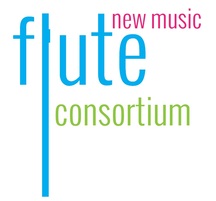Get to Know...Daniel Miller One of the most interesting elements of the composer features is to learn more about the inspiration for the works. We found it really fascinating to learn about the way Daniel Miller conceived of Contrails for flute and three-channel live electronics. Contrails was awarded the Honorable Mention in the flute and accompaniment category in 2016. Daniel began with the idea of a contrail, a trail left behind after something’s passing, and interpreted it in several ways. We can’t describe it better than Daniel, so we’ll quote from the program notes for the work “The electronics serve as a “contrail” to the flute, capturing and sustaining certain resonant frequencies of the flute’s sound. The whole work is also a contrail of Bach’s aria, “Aus Liebe Will Mein Heiland Sterben” from St. Matthew’s Passion, about the compassion of Christ’s self-sacrifice. Most of the material in this piece was derived from a spectral analysis of the aria. An original computer algorithm running in ACToolbox was used to “morph” smoothly between spectrally generated material and the original flute melody found in the aria. This interpolation occurs in nearly every parameter of the music (rhythm, pitch, dynamics, etc.). The effect is that one musical idea gradually recedes from the texture revealing a second idea hidden within or beneath it. As this patina dissolves, notes or phrases from the original aria are sometimes heard to emerge from the resonant, fluttering abyss from which the work begins.” Sometimes, we’ve found that works strongly based on an algorithm are fascinating in their construction, but lack a certain emotional content. This is not the case in Contrails it is a beautiful and haunting work, a testament to Daniel’s skills as a composer! Daniel is currently studying in India on a Fulbright Fellowship, we look forward to hearing new music inspired by his research and collaborations in Mysore! Q&A with Daniel… Describe your musical background and current activities. I've been lucky to have had an unremittingly varied and adventurous introduction to various sound practices. Although I have an undergraduate degree in contemporary music theory and composition, I also spent a year studying with "outsider" sound artists on three continents, developing an eccentric "prepared" field-recording practice through travels as a Thomas J. Watson Fellow. In 2015, I followed-up on my passion for intersections between music and technology, completing a master’s degree in digital musics at Dartmouth College. Currently I'm a Fulbright-Nehru Fellow based in Mysore, India, where my research and music composition has reflected various collaborations with Indian musicians and sound artists in and around the Bangalore scene. What about new music for the flute appeals to you? The flute is a very somatic instrument. The physicality of the lips and mouth and lungs and hands are very present in the sound, unmediated by strings or hammers or even a reed. I'm really interested in how that manifests in music and in performance, especially in the moments between steady, stable states where standing waves or controllable musical gestures start to break down. In composition, I want to explore how the artifice of stability and control can be peeled back to reveal the chaotic flux saliva, air pressure, and metallic movement. Tell us a bit about your compositional process. I consider myself a composer/programmer. A lot of my works are composed with the assistance of computer programs, either for pre-compositional calculations or for live audio processing and/or synthesis. More About Daniel… A native of Seattle (USA), Daniel Miller is a composer, programmer, instrument builder, and field recordist. His creative practice centers on perceiving and responding to the vitality latent in simple processes, materials, and technologies. Recent creative interests have included explorations of found objects, live animated interactive scores, and feedback cycles between performers and stochastic processes or acoustic automata. Daniel’s music has been performed in North America, Europe, and Asia. Past collaborators include Nouvel Ensemble Moderne, ensemble mise-en, the International Contemporary Ensemble, Ensemble l'Itinéraire, Sound Energy Trio, the NOW Ensemble, and Ensemble MotoContrario. His electroacoustic works have been accepted by conferences of the Society for Electroacoustic Music in the United States (SEAMUS) and the International Computer Music Association (ICMC), and his research on visual score representation and notation has been featured at the International Conference on Technologies for Music Notation and Representation (TENOR). In 2013 he was a recipient of a Thomas J. Watson Fellowship, a grant that made possible twelve months of research on music and technology in seven countries. In 2016 and again in 2017 Daniel was a recipient of the BMI Student Composer Awards. A former student of the Conservatorium van Amsterdam, Daniel is a recipient of degrees in music composition and philosophy from Lawrence University. Most recently he received his masters degree in Digital Musics from Dartmouth College where he was a music composition student of Ashley Fure. Daniel is currently a Fulbright-Nehru research fellow based in Mysuru, India, where he is advised by Dr. Mysore Manjunath at the University of Mysore. www.lontanomusic.com If you liked Contrails…. Hoquetus Perindens Date of Composition: 2012 Instrumentation: flute, clarinet, electric guitar, double bass, piano Duration: 3’ Ritual On a Poem By Whitman Date of Composition: 2012 Instrumentation: alto flute (doubling on flute), percussion (3 players), soprano, tenor, live electronics. Duration: 6’ Vela Sierra Date of Composition: 2016 Instrumentation: bass flute, accordion, violin, viola, double bass, and synthesizer
0 Comments
Leave a Reply. |
AuthorThe Flute New Music Consortium is an organization dedicated to the creation and support of new music for the flute. Archives
June 2019
Categories
All
|

 RSS Feed
RSS Feed
